Muscles
Muscles are a crucial part of the human body, responsible for movement, stability, and maintaining posture. They are made up of specialized cells that have the unique ability to contract and relax, allowing for various types of movements.
Anatomy of Muscles
There are three main types of muscles in the human body: skeletal, smooth, and cardiac.
Skeletal Muscles
Skeletal muscles are attached to bones and are responsible for voluntary movements such as walking, running, and lifting. They are striated in appearance due to their organized arrangement of muscle fibers.
Smooth Muscles
Smooth muscles are found in the walls of internal organs such as the stomach, intestines, and blood vessels. They are responsible for involuntary movements and are not striated in appearance.
Cardiac Muscles
Cardiac muscles are found in the heart and are responsible for pumping blood throughout the body. They are striated like skeletal muscles but are involuntary, meaning they work without conscious control.
Functions of Muscles
Aside from movement, muscles have several other important functions:
- Stability and Posture: Muscles help maintain the body's posture and stability, allowing us to sit, stand, and move with proper alignment.
- Heat Production: Muscles generate heat as a byproduct of their activity, helping to maintain the body's temperature.
- Protection: Some muscles protect internal organs, such as the abdominal muscles protecting the organs in the abdominal cavity.
Study Guide
Here are some key points to remember when studying muscles:
- Identify and understand the three types of muscles: skeletal, smooth, and cardiac.
- Learn the functions of muscles beyond movement, such as stability, heat production, and protection.
- Understand the structure of skeletal muscles, including the arrangement of muscle fibers and the role of tendons in connecting muscles to bones.
- Explore the concept of voluntary versus involuntary muscle movements.
- Consider the impact of regular exercise on muscle strength, endurance, and overall health.
By grasping these concepts, you can gain a deeper understanding of the importance of muscles in the human body and how they contribute to our daily activities and overall well-being.
[Muscles] Related Worksheets and Study Guides:
.◂Science Worksheets and Study Guides Eighth Grade. Fossils

 Activity Lesson
Activity Lesson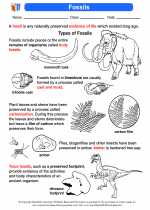
 Worksheet/Answer key
Worksheet/Answer key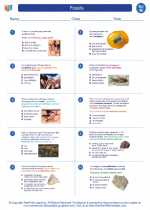
 Worksheet/Answer key
Worksheet/Answer key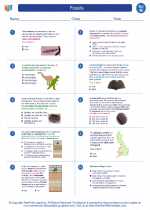
 Worksheet/Answer key
Worksheet/Answer key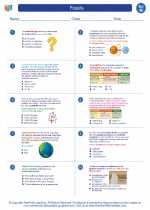
 Worksheet/Answer key
Worksheet/Answer key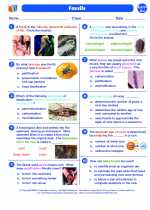
 Vocabulary/Answer key
Vocabulary/Answer key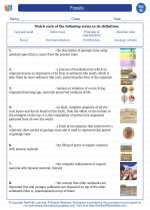
 Vocabulary/Answer key
Vocabulary/Answer key
